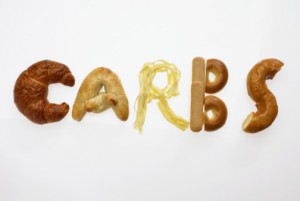Do I Choose Low Calorie, Low Carb, or a Low Fat Diet?
By Anthony Heredia | October 14th, 2011 | Category: Fitness Couture, Nutrition | Comments Off on Do I Choose Low Calorie, Low Carb, or a Low Fat Diet? So now you are committed to losing weight and taking your physique to new beach body levels, but what next? Losing weight is challenging enough without the stress of sifting through the sea of diet options only to lose more time, money, and momentum than actual weight with the wrong diet choice. Three of the most common diet approaches are calorie restriction, the fat reduction route, and the low carbohydrate approach. In order to reap the best results possible, you must be comfortable and happy with your approach in order to stick to it and maintain your hard-earned results. Calorie counting is a method which involves a reduction of total daily calories and an increase in activity. If done correctly, more energy will be burned than is being taken in, creating a calorie deficit and resulting in your weight loss. A carbohydrate reduction route replaces most or all carbs with fat and protein calories. This will force the body to use stored body fat for energy since carbohydrates are scarce. Lastly, the low fat approach simply focuses on the reduction of fats in order for the body to tap into its own stored body. Each approach carries its pros and cons, so weigh them carefully before deciding what best suits you.
So now you are committed to losing weight and taking your physique to new beach body levels, but what next? Losing weight is challenging enough without the stress of sifting through the sea of diet options only to lose more time, money, and momentum than actual weight with the wrong diet choice. Three of the most common diet approaches are calorie restriction, the fat reduction route, and the low carbohydrate approach. In order to reap the best results possible, you must be comfortable and happy with your approach in order to stick to it and maintain your hard-earned results. Calorie counting is a method which involves a reduction of total daily calories and an increase in activity. If done correctly, more energy will be burned than is being taken in, creating a calorie deficit and resulting in your weight loss. A carbohydrate reduction route replaces most or all carbs with fat and protein calories. This will force the body to use stored body fat for energy since carbohydrates are scarce. Lastly, the low fat approach simply focuses on the reduction of fats in order for the body to tap into its own stored body. Each approach carries its pros and cons, so weigh them carefully before deciding what best suits you.
Pros of Low Cal
Low calorie is one of the very best options for long-term results as it is the easier, flexible, and healthy permanent approach. In a low calorie diet, you would simply calculate how many calories your body is using daily and reduce that total amount by a healthy realistic number. You can learn all about how many calories you should be taking in for weight loss in our “Health 101 – Weight Loss” article. Calorie reduction is an easier approach since you do not need to eliminate the foods you love. All you need to do is learn the best ways to prepare low calorie and healthier versions. The low calorie diet is best for those who enjoy a wide variety of foods and don’t mind eating a little less than they are accustomed to. This is also great for those who are too busy for the gym. A committed, healthy diet will result in weight loss regardless of the amount of time you spend at the gym, but physical fitness will enhance your results dramatically. The best pro of low calorie diets is that nearly every con will turn into a long-term pro once you get the hang of this.
Cons of Low Cal
 Calculating your calories regularly takes a lot of commitment and work. You will need to become significantly more aware of everything you eat by flipping over foods, reading every label and calorie facts. This may seem tedious and time consuming at first, but for the long term it isn’t necessarily a bad thing. Once you know the calories in a serving of Alfredo Sauce, you typically don’t need to keep checking unless you’re curious about certain ingredients. Also, by checking food labels you become much more conscious about what you are putting into your body. You may even think twice about the pack of ground beef and opt for the lean ground turkey instead. Monitoring the amount and type of calories that go into your body is definitely work, but it will also expand your mental data bank and commit you to longer lasting results. In time it becomes as routine as brushing your teeth, no fuss at all. Low calorie diets also restrict the amount of food you take in, so this can be a dramatic change for those who enjoy significantly larger portions.
Calculating your calories regularly takes a lot of commitment and work. You will need to become significantly more aware of everything you eat by flipping over foods, reading every label and calorie facts. This may seem tedious and time consuming at first, but for the long term it isn’t necessarily a bad thing. Once you know the calories in a serving of Alfredo Sauce, you typically don’t need to keep checking unless you’re curious about certain ingredients. Also, by checking food labels you become much more conscious about what you are putting into your body. You may even think twice about the pack of ground beef and opt for the lean ground turkey instead. Monitoring the amount and type of calories that go into your body is definitely work, but it will also expand your mental data bank and commit you to longer lasting results. In time it becomes as routine as brushing your teeth, no fuss at all. Low calorie diets also restrict the amount of food you take in, so this can be a dramatic change for those who enjoy significantly larger portions.
Pros to Low Fat
A low or nonfat diet is actually a low calorie diet but with the emphasis on dietary fat reduction, which can have a positive effect on your body if it is saturated fats you reduce. The human body requires mono and polyunsaturated fats to maintain your skin, hormones, body temperature, hair health, energy levels, and so much more. Reducing fats is always a pro when they are bad saturated fats such as those in fatty cuts of meat. Make sure the few fats you do take in are good unsaturated fats, like the omega 3 found in salmon and nuts, which actually help you burn more stored fat.
Cons to Low Fat
Without enough healthy fats in your diet, your body can begin to slow your metabolism, reduce energy levels, and increase body fat; and skin will become dry and flaky. No food group should ever be eliminated completely unless advised and supervised by a medical professional since every nutrient serves its purpose. Eliminating all fats dramatically for an extended amount of time can cause your body to reduce body fat stores temporarily. Soon enough you may gain even more body fat as a self defense mechanism and usher in a host of other problems due to the body’s lack of nutrients.
Pros to Low Carb
A low carb diet can motivate you in the gym since it requires a significant emphasis on exercise to deplete energy stores so it will then be forced to dip into stored body fat. Low carb diets force the body to burn significantly higher levels of stored body fat at faster rates since carbs serve as the body’s primary source of energy and are scarce. As you pack on more muscle in this process, you will also burn extra body fat as a bonus. A low carb diet combined with sensible food choices and ample amounts of exercise can lead to dramatic results.
Cons to Low Carb
 A low carb diet typically eliminates all carbohydrates or allows up to 600 calories a day maximum. Cutting all these carbohydrates will leave you to fill up on fats and meats which can stress your liver. This diet will pull you away from fruits, pastas, breads, beans, and sweets but can still incorporate non-starchy veggies. This will limit a lot of foods with vital nutrients so you will need to supplement them back in. Mayoclinic.com concludes that low carb diets can lead to diarrhea, gallstones, chronic fatigue, nausea, dehydration, mental fog, and can even reduce the speed of your metabolism should you endure zero carbs for too long. A large loss of weight at first will come from a loss of water weight as a low carb diet has a diuretic effect. This is a popular method because it delivers fast results but as effective as it may be in short bursts, it is no long-term approach and can have its dangers if done improperly.
A low carb diet typically eliminates all carbohydrates or allows up to 600 calories a day maximum. Cutting all these carbohydrates will leave you to fill up on fats and meats which can stress your liver. This diet will pull you away from fruits, pastas, breads, beans, and sweets but can still incorporate non-starchy veggies. This will limit a lot of foods with vital nutrients so you will need to supplement them back in. Mayoclinic.com concludes that low carb diets can lead to diarrhea, gallstones, chronic fatigue, nausea, dehydration, mental fog, and can even reduce the speed of your metabolism should you endure zero carbs for too long. A large loss of weight at first will come from a loss of water weight as a low carb diet has a diuretic effect. This is a popular method because it delivers fast results but as effective as it may be in short bursts, it is no long-term approach and can have its dangers if done improperly.
Which Is Best
When all is said and done, the best approach is actually a little bit of each one. The foundation for your program should include a healthy, low calorie approach reducing saturated fats and unnecessary empty carbs like simple sugars. Each diet has its merits, so why not take the best of each and leave the negatives at the door? The best diet possible is not a diet at all, but a balanced approach to a healthier lifestyle that incorporates all the things you love in healthier forms. Reduce bad fats, but increase good unsaturated fats. Reduce useless carbs like those in cookies and candy, but utilize healthy whole grains, beans rich in fiber, along with nutritious fruits and veggies. In order to lose weight at a healthy and consistent rate, you need to determine your daily calorie need and eat 400 to 800 calories fewer while exercising regularly. Starvation and extreme weight loss tactics will always be temporary and can put you in a worse place than when you began. They will often leave you discouraged, disappointed, and lacking important nutrients that come from a healthy diet. No one should deprive himself/herself of the tastes and flavors he/she loves; but maintaining balance and modifying recipes will set you up for long term success, a body to be proud of, and along lease on life.
References:
Mayo Clinic: Low-carb diet
http://www.mayoclinic.com/health/low-carb-diet/NU00279
The Diet Channel: Low Calorie Diet
http://www.thedietchannel.com/Low-calorie-diet.htm
Mayo Clinic: Low Fat vs Low Carb
http://www.mayoclinic.com/health/low-fat-vs-low-carb/MY01446/
National Institute of General Medical Science: What do Fats Do in the Body?
http://publications.nigms.nih.gov/insidelifescience/fats_do.html








